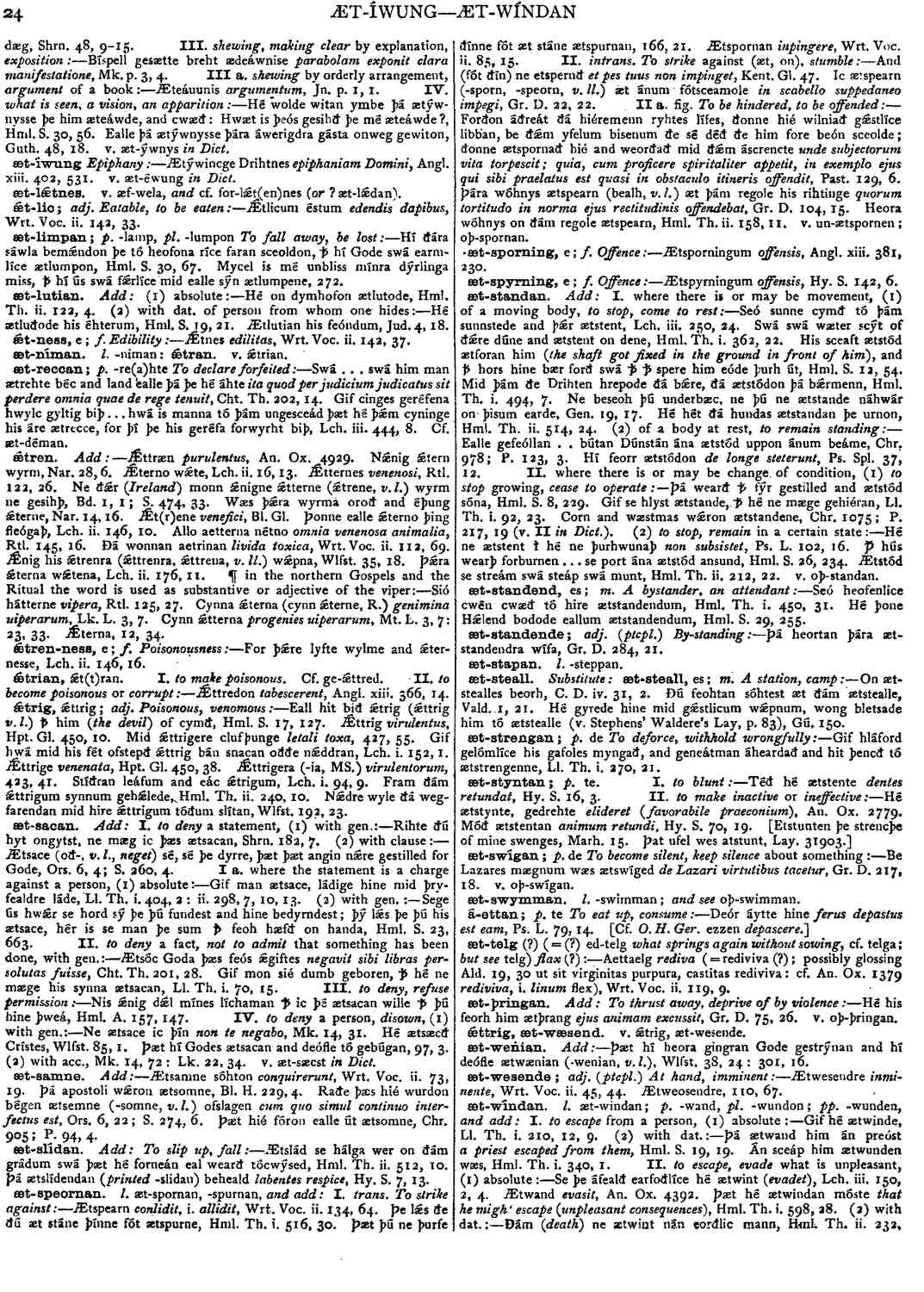æt-wíndan
- verb [ strong ]
-
Gif hé ætwinde,
- Ll. Th. i. 210, 12, 9.
-
Þá ætwand him án preóst
a priest escaped from them
,- Hml. S. 19, 19.
-
Án sceáp him ætwunden wæs,
- Hml. Th. i. 340, l.
-
Se þe áfealð earfoðlíce hé ætwint (
evadet
),- Lch. iii. 150, 2, 4.
-
Ætwand
evasit
.- An. Ox. 4392.
-
Þæt hé ætwindan móste
that he migh' escape (unpleasant consequences' ),
- Hml. Th. i. 598, 28.
-
Ðám (
death
) ne ætwint nán eorðlic mann, HmL- Th. ii. 232,22.
-
Hé ðám wítum ætwunde,
- Hml. S. 23, 118.
-
Ðám écum wítum ætwindan,
- 16, 93: Hml. A. 34, 251.
-
Þá þe middan-geard oferswíðdon and his yrmða ætwundon,
- Hml. Th. i. 84, 32. v. oþ-windan.
Bosworth, Joseph. “æt-wíndan.” In An Anglo-Saxon Dictionary Online, edited by Thomas Northcote Toller, Christ Sean, and Ondřej Tichy. Prague: Faculty of Arts, Charles University, 2014. https://bosworthtoller.com/38123.
Checked: 0